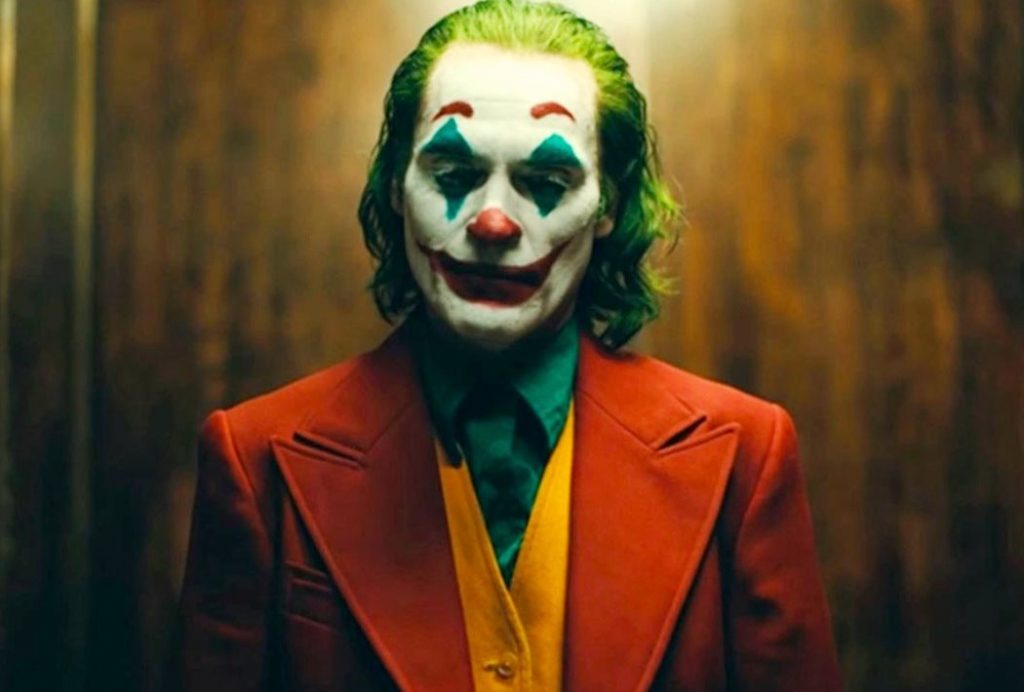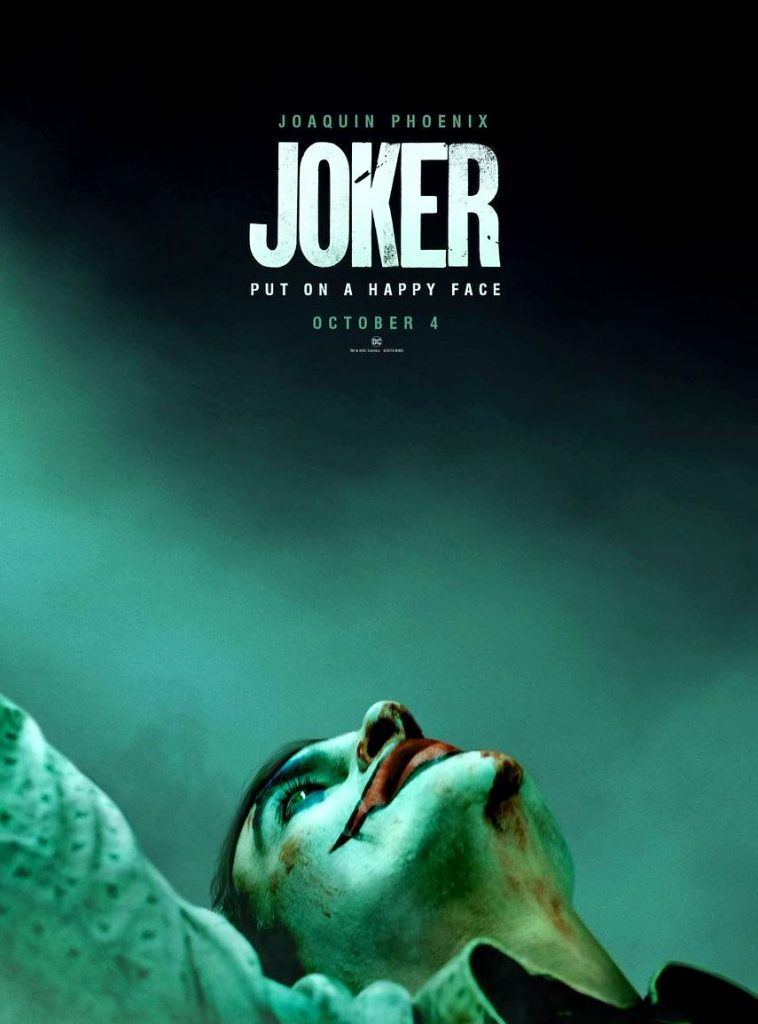
Joker has early scene pungency and it is obvious it contains a volcanic Joaquin Phoenix performance that should have us standing to applause. In addition, it contains a pessimistic consistency by Todd Phillips who definitely has a vision, but also tends to rely on too much coverage – so while one image can be potent, he cuts unnecessarily to a different camera shot when he doesn’t need to. His aim is not an emphasis on “Batman” lore even though it does eventually weld comic book heroes and villains together, but to give us the bleaker 70’s style urban rot of “Taxi Driver” (but it lacks the romantic delusions of Travis Bickle, so it plays more depressing). It also shoehorns “The King of Comedy” allusions, the ambivalent what decade are we in? dystopian cityscapes of “Seven” and Harmony Korine’s private gesticulations amidst filth squalor “Gummo” into its very why so serious DNA.
As the number of disintegrating failures for Phoenix’s Arthur Fleck pile up, Joker gets the sudden laborious obligation to bring in the Thomas Wayne and Bruce Wayne characters into the story and force an arc. That’s fine. Except there’s more to it I’m not buying.
Neighbor Sophie (Zazie Beetz) has quite a good scene where she’s dumbfounded by irregular behavior within her own apartment unit, but you have to wonder, what stopped her from calling the cops? Next day Fleck is visited by two ex-coworkers, one whom he had badgered previously on his way out of work, and I’m doubting the two of them would ever show up voluntarily the way they do.
Phoenix has a burnout scene at a hall of records, and he’s at once an electrifying actor and also a demonstration of acting that goes too beyond the extremes, stretching plausibility – I stopped believing at that point, or maybe at some point a bit earlier, that Fleck wouldn’t already be locked up in an insane asylum.
Of course, that goes against the thesis of the movie which says social rejects are often not accounted for in a defective system, therefore turned loose in the streets, and without access to rehabilitation, can fall deep into psychosis.
The plot pivot concerns Fleck as a fledgling stand-up comedian with underwritten material, who is such a dud his taped show gets picked on by late night talk show host Murray Franklin (Robert DeNiro). Murray is a fuddy duddy host and cozy home companion, who is a bit too innocuous (I don’t buy that people would tune in three hundred plus days a year to see that). In any sensible world, any talent liaison would go out to interview a hack talent like Fleck to see if they were appropriate and sane enough for a live taping TV spot, but Fleck gets on Murray’s show all too easy. DeNiro seems to be warming up to say something momentous, or incendiary, in the crucial airing. And while the dialogue isn’t bad… it also doesn’t elevate above the obvious.
Sure, Phoenix gives us a bombarding, schizoid freak Joker, but I don’t think it’s an extraordinary performance on the level of Heath Ledger in “The Dark Knight.” Phoenix is past the brink, too rotten, too unsteady to be effectively diabolical if this were about villain origins. But you could never claim that Phoenix is not throwing in the kitchen sink with his acting efforts.
122 Minutes. Rated R.
COMIC BOOK LORE / MATURE TEENS / WEEKEND ULTRAVIOLENCE
Film Cousins: “Taxi Driver” (1976); “The King of Comedy” (1983); “Seven” (1995); “Gummo” (1997).






Recent Comments
rudolfmenon Says,
Totally agree. And we left the cinema really disappointed.
rudolfmenon Says,
Really? Wow, then im going to watch this! I could watch District 9 ...
soulreaver99 Says,
The trailer to the movie itself was half-assed. Totally not surprising that ...
hashbrowny Says,
Great family movie...I disagree with your view. Maybe you've lost your ...
calipoppy Says,
Man of Steel is a Hunk of Kryptonite.I enjoyed the movie.